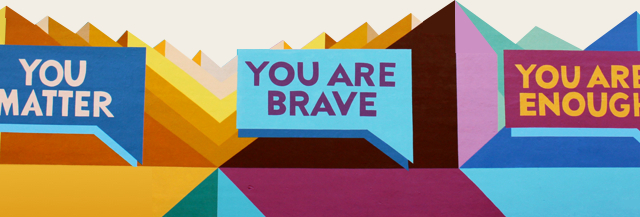

Hello,
Can we help you find something?FAQ Topics
Depression is a common mood disorder that can affect anyone. In fact, 300 million people worldwide experience some form of depression.* And while many factors can impact a person’s mental health—such as biology, environment, and life stressors—it’s important to keep in mind that there is no single cause. Depression is something that can affect anyone, at any time, regardless of family history, race, religion, and lifestyle. Since it is something that so many people experience, it’s important to talk about it, and to let others know they aren’t alone. Learn more about the facts of depression to help you have supportive conversations with those who need it the most.
*Source: World Health Organization
Related Article
 Depression Facts - Causes, Attitudes, & Stigmas
Depression Facts - Causes, Attitudes, & Stigmas
It’s important to remember that everyone’s experience with depression is different. However, many describe it as feeling deeply unhappy without knowing why for a long period of time. It’s not always easy to recognize depression in yourself or others, but some other common symptoms can include changes in appetite or weight, sleeping too much or too little, fatigue and low energy, and loss of pleasure in activities you usually enjoy. Depression can also affect children and teens. In fact, 50% of adolescents have experienced a mental health condition.* Read more about which signs and symptoms of depression to look for in adults, kids, and teens, and to find out how you can help.
If you think you may be depressed, take our self-assessment. And keep in mind: many people get better when they have the right support.
*Source: National Institute of Mental Health
Bipolar disorder, formerly known as manic depression, causes extreme mood changes from manic episodes of very high energy to the extreme lows of depression. Symptoms range from the highs of feeling euphoric and needing very little sleep to the lows of having trouble thinking and making decisions, memory problems, and thoughts of suicide. More than 3 million Americans—about 1% of the population—experience bipolar disorder,* and its extreme behavioral effects can make it difficult to function at work, in family and social situations, and in relationships with others. Learn more about what bipolar disorder is and its potential treatment options .
*Source: Brent DA, Pan RJ (2008). Bipolar disorders. In MH Ebert et al., eds., Current Diagnosis and Treatment in Psychiatry, 2nd ed., pp. 607–611. New York: McGraw-Hill.
Depression can affect anyone. However certain populations are at a greater risk of developing depression in their lifetime. People who experience bullying, neglect, abuse, and violence in childhood or as adults are more likely to develop depression. Racism and social injustice contribute to higher rates of depression among Black, Latinx, Indigenous and people of color. Those who identify as LGBTQI also are at a higher risk of mental health conditions and even suicide. People who face high levels of daily stressors at work—like frontline health workers, people in the military, and those who provide essential services—are more likely to experience depression, loneliness, and burnout. Read more about the different reasons why certain populations are more vulnerable and learn how you can help them (or yourself) get the right support.
Related Article
 Who Does Depression Affect?
Who Does Depression Affect?
Everyone feels worried or nervous from time to time. It’s a normal part of everyday life. However, when those feelings start to overwhelm your everyday life, it may be a symptom of an anxiety disorder, or even a symptom of depression. Anxiety disorders happen when people have physical and emotional symptoms like trembling, twitching, or shaking; breathlessness or rapid heartbeat; worrying too much; and fearing that something bad is going to happen. There are different types of anxiety disorders. Some examples include panic attacks, generalized anxiety disorder, and phobias. Women are twice as likely as men to have problems with anxiety disorders. Learn more about anxiety disorders and take an anxiety screening if you think you are experiencing any of these symptoms.
Just like depression, anxiety disorders are common and treatable. Everyone experiences it differently but there are common symptoms to look for. They include fear and worry, thoughts that something bad will happen, rapid heartbeat, feeling out of breath or tired, and not being able to sleep. Many people with anxiety also experience depression. However, treatment works for 9 out of 10 people seeking help for panic attacks.* Learn more about the common signs and symptoms of anxiety and know that if you’re dealing with it, you’re not alone and there are resources to help.
*Source: Mental Health America
Related Article
 Symptoms of Anxiety & Depression
Symptoms of Anxiety & Depression
A panic attack is a very common type of anxiety disorder. It’s a sudden feeling of extreme anxiety or intense fear without a clear cause. They usually last only a few minutes, but sometimes an attack can last longer. Symptoms of a panic attack include rapid breathing, feelings of dying, chest pains or tightness, and an irregular heartbeat. Sometimes symptoms can feel so intense that a person fears they are having a heart attack. It’s important to know that if you experience panic attacks, you are not alone and there are resources available to get you the support and help you need. Learn more about panic attacks.
Most information pulled from panic attack section in this article: Anxiety
It’s important to know you’re not alone if you’re struggling with depression. Reaching out for help and talking to someone is the first step toward feeling better. Our online Support Center has resources available to help you find the support you need. We have self-check and screening tools, crisis and help lines, and ways to connect with people who understand what you’re going through.
Related Article
 Support center
Support center
Depression can be very difficult to talk about—even with people you’re close to. But once you start the conversation, it can be a very helpful first step towards feeling better. Talk to people in your life you trust, and you know are thoughtful, caring, and good listeners. If you don’t want to talk to your friends and family, then consider reaching out to your doctor, or a trusted counselor, teacher, or spiritual advisor. Learn more on how to start these conversations and see our examples of what you can say.
Related Article
 How to Talk to Someone About Depression
How to Talk to Someone About Depression
Everyone’s experience with depression and treatment is different. What works for someone else may not necessarily work for you. It might also take some time to figure out the best way to manage your situation. Some types of treatment include individual therapy, group therapy, medications, and healthy lifestyle changes. Read more about the common treatment options and how they work.
Related Article
 How Is Depression Treated - 4 Common Options
How Is Depression Treated - 4 Common Options
Depression affects everyone differently. For some people, it might feel constant and for others it might come and go. However, it’s important to act if you think you’re feeling depressed. Don’t ignore feelings of helplessness, sadness, or loneliness. If you think you’re depressed, our self-assessment tool can help you find the words to talk with your doctor.
Related Article
 Depression Test - Online Self-Assessment
Depression Test - Online Self-Assessment
Talking about depression is difficult. But it’s important to have the courage to speak up and talk to loved ones who may be struggling with depression. In fact, 86% of people say face-to-face is the best option.* Listen to them with an open mind so they feel understood and supported. Finding your words and speaking up sends a powerful message that they’re not alone. Check out examples of what to say to help people feel supported.
*Source: Kaiser Permanente Consumer Poll, 2017
Related Article
 What to Say to Someone Who Is Depressed?
What to Say to Someone Who Is Depressed?
It’s important to know the warning signs of suicide to help someone who may be in danger. Some signs include talking about wanting to die, looking for ways to kill themselves, talking about feeling trapped or in unbearable pain, talking about being a burden to others, and more. It’s also important to act early if you think someone might be struggling. Take their concerns seriously and listen carefully. If you think someone is in danger, don’t hesitate to seek help immediately by calling 911 or going to the nearest hospital. It may help save someone’s life.





